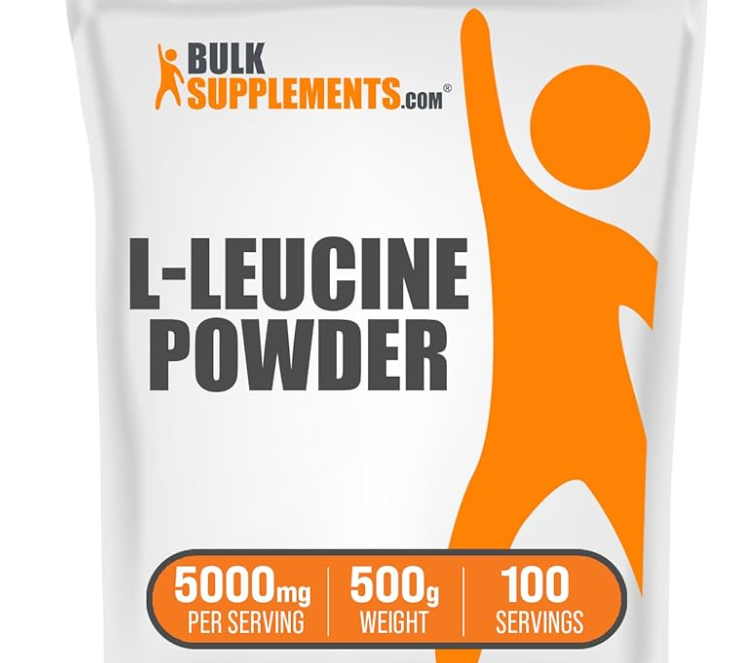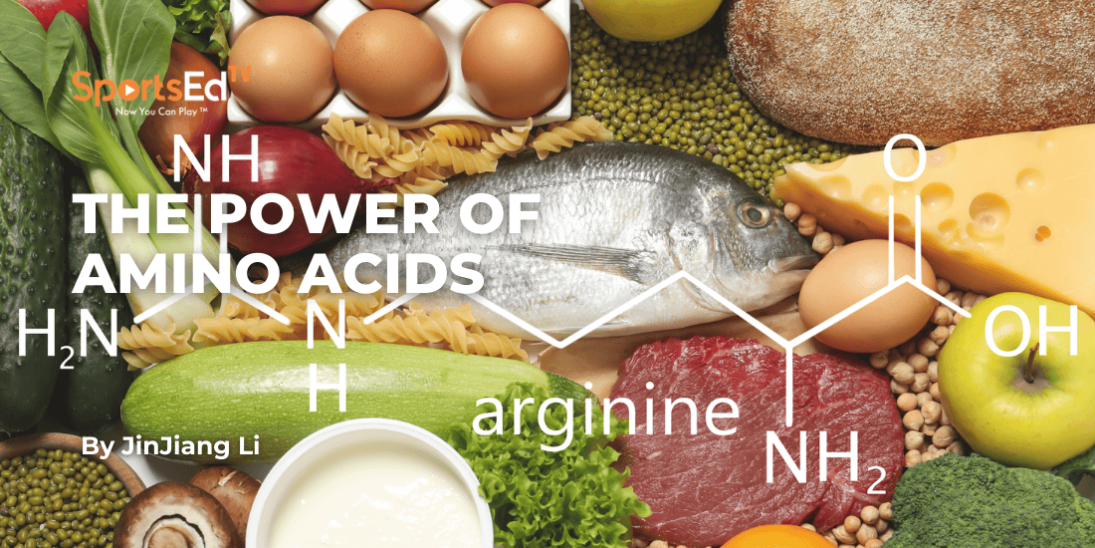Health, Nutrition
Welcome and thanks for visiting...

Leucine: The Key Amino Acid for Healthy Aging and Muscle Maintenance

Aging brings about many physiological changes, many of which can affect our physical strength and performance. One of the most concerning is the gradual loss of muscle mass and function, known as sarcopenia. This age-related muscle loss doesn’t just impact athletic performance; it also affects balance, mobility, and overall quality of life.
The good news is that science has identified a powerful tool to combat muscle decline: leucine. This essential amino acid, widely recognized for its role in muscle protein synthesis, has gained prominence recently as a critical component in supporting healthy aging. Whether consumed through natural foods or protein supplements, leucine can be pivotal in preserving muscle mass and promoting recovery, especially in older adults.
Let’s look into the science behind leucine and why it’s crucial as we age.
Understanding Sarcopenia and the Role of Leucine
Sarcopenia is a condition characterized by a progressive decline in skeletal muscle mass and strength. It typically begins around the age of 30 and accelerates after the age of 50. While part of this decline is due to reduced physical activity and hormonal changes, diet and nutrient absorption also play a significant role.
One of the key challenges in combating sarcopenia is overcoming "anabolic resistance." As we age, our muscles become less responsive to protein intake, meaning that even if an older individual consumes enough protein, their body may struggle to use it efficiently for muscle repair and growth.

This is where leucine comes into play. Leucine is one of three branched-chain amino acids (BCAAs) and is particularly effective at stimulating the mammalian target of the rapamycin (mTOR) pathway. The mTOR pathway is crucial for muscle protein synthesis, which is how the body repairs and builds muscle tissue. By activating this pathway, leucine helps counteract anabolic resistance, making it a valuable nutrient for preserving muscle mass in older adults.
What Makes Leucine Unique?
While all amino acids are important for protein synthesis, leucine stands out for several reasons:
- Direct Activation of Muscle Protein Synthesis
Leucine serves as a trigger for muscle-building processes in the body. Unlike other amino acids, it has a direct impact on the mTOR pathway, which essentially acts as a "switch" for muscle protein synthesis. - Higher Threshold for Effectiveness
Research shows that older adults require higher levels of leucine to achieve the same muscle-building effects as younger individuals. This makes leucine-rich foods and supplements especially important for aging populations. - Synergy with Other Nutrients
Leucine works best when combined with a high-quality protein source. For instance, whey protein—already known for its superior amino acid profile—contains high levels of leucine, making it an ideal supplement for those looking to preserve muscle mass.

The Science Behind Leucine Supplementation
A study published in the Journal of Nutrition explored the impact of leucine on muscle protein synthesis in older adults. The findings revealed several key insights:
- Older individuals require approximately 3-4 grams of leucine per meal to effectively stimulate muscle protein synthesis, compared to about 2.5 grams for younger adults.
- When combined with resistance training, leucine supplementation can significantly enhance muscle growth and recovery, even in older populations experiencing anabolic resistance.
- Regular consumption of leucine-rich meals or supplements helps preserve lean muscle mass, reduces muscle breakdown, and improves overall physical performance.
These findings underscore the importance of tailoring dietary protein intake to meet the specific needs of older adults, with leucine playing a central role in this strategy.
Leucine and Physical Performance
Leucine isn’t just for older adults; it’s also a game-changer for athletes and active individuals of all ages. Its ability to enhance recovery and support muscle repair makes it a popular ingredient in many protein supplements.
For athletes, leucine offers several benefits:
- Faster Recovery: Leucine helps repair microtears in muscle fibers caused by intense exercise, reducing soreness and downtime between workouts.
- Increased Muscle Protein Synthesis: By boosting the body’s natural muscle-building processes, leucine aids in gaining strength and size more efficiently.
- Reduced Fatigue: Leucine supplementation has been linked to improved endurance, allowing athletes to perform at higher intensities for longer durations.
These benefits are especially valuable for older athletes who may face additional challenges in recovering from workouts or maintaining muscle mass.
Dietary Sources of Leucine
While leucine supplements are a convenient way to boost intake, it’s also possible to meet your leucine needs through a balanced diet. Here are some of the best natural sources of leucine:
Animal-Based Proteins
-
- Chicken breast: 1.7 grams of leucine per 100 grams
- Beef: 1.8 grams of leucine per 100 grams
- Eggs: 0.5 grams of leucine per egg
- Fish (salmon, tuna): 1.6 grams of leucine per 100 grams

Dairy Products
-
- Milk: 0.3 grams of leucine per cup
- Greek yogurt: 1.3 grams of leucine per 100 grams
- Cheese (parmesan): 3.5 grams of leucine per 100 grams
Plant-Based Proteins
-
- Soybeans: 2.3 grams of leucine per 100 grams
- Lentils: 0.7 grams of leucine per 100 grams
- Peanuts: 1.5 grams of leucine per 100 grams
Protein Supplements
-
- Whey protein powder: 2-3 grams of leucine per 25-gram serving
- Plant-based protein powders (pea, rice, or soy): 1.5-2 grams of leucine per 25-gram serving
Incorporating these foods into your meals can help you get enough leucine to support muscle health.
Leucine Supplements: Are They Necessary?
Supplements can be an effective solution for individuals who struggle to meet their leucine needs through diet alone—whether due to dietary restrictions, poor appetite, or high physical demands.
When choosing a leucine supplement, consider the following:
- Whey Protein Isolate: This is one of the best options due to its high leucine content and rapid absorption.
- BCAA Supplements: These typically include leucine alongside isoleucine and valine, offering a broader range of benefits for muscle health.
- Pure Leucine Powder: Pure leucine powder can be added to smoothies or meals for those who want to target leucine intake specifically.
How to Maximize Leucine’s Benefits
To get the most out of leucine, follow these guidelines:
- Spread Your Intake Throughout the Day
Consuming 3-4 grams of leucine at each meal ensures consistent stimulation of muscle protein synthesis. - Combine with Resistance Training
Exercise enhances the effectiveness of leucine by creating an environment that promotes muscle repair and growth. - Pair with High-Quality Protein
Foods or supplements rich in leucine are most effective when part of a balanced meal that includes other essential amino acids. - Consider Timing
Consuming leucine-rich foods or supplements within an hour after exercise can accelerate recovery and maximize muscle-building potential.
Leucine and Aging: A Vital Partnership
For older adults, incorporating leucine into daily nutrition isn’t just about maintaining muscle mass—it’s about preserving independence and quality of life. Muscle strength is directly linked to mobility, balance, and the ability to perform everyday tasks. By addressing anabolic resistance with leucine, older individuals can stay active and reduce the risk of falls and fractures.
The Case for Leucine
Leucine’s ability to directly stimulate muscle protein synthesis makes it a standout nutrient for combating age-related muscle loss and supporting recovery in athletes. Whether you’re an older adult looking to maintain strength or an athlete seeking better performance, leucine can play a central role in achieving your goals.
The science is precise: our nutritional needs evolve as we age, and leucine becomes an essential component of a balanced diet. By prioritizing leucine-rich foods or supplements, you can preserve muscle health, enhance recovery, and lead a more active, fulfilling life.









